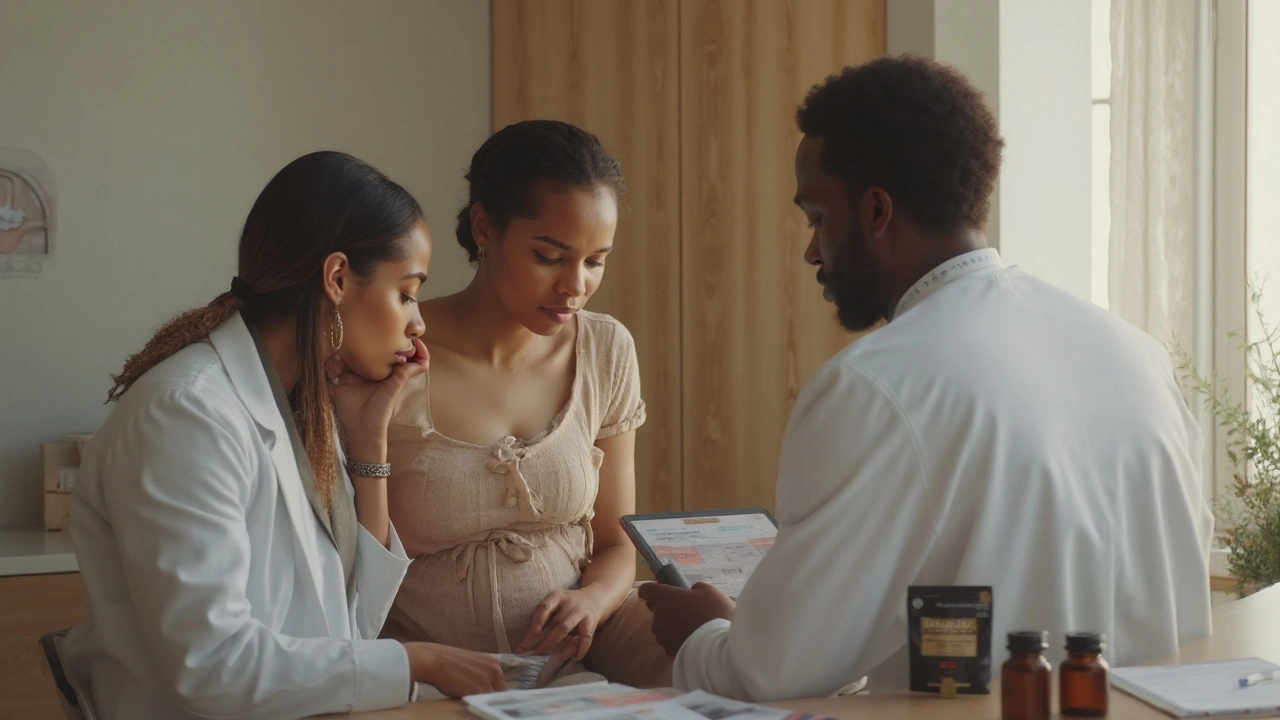Antidepressants in Pregnancy: What You Need to Know
If you’re expecting a baby and dealing with depression, you’re probably wondering if medication is safe. The short answer is yes, many antidepressants can be used safely, but the choice matters. This guide breaks down the most common options, what the research says about risks, and how to have a smart conversation with your doctor.
Commonly Prescribed Antidepressants
Doctors usually start with selective serotonin reuptake inhibitors (SSRIs) because they have the longest safety record in pregnancy. The most frequently used SSRIs are fluoxetine (Prozac), sertraline (Zoloft), and citalopram (Celexa). Studies show that these drugs do not raise the chance of major birth defects, although a tiny increase in heart‑related issues has been reported for some SSRIs.
Serotonin‑norepinephrine reuptake inhibitors (SNRIs) like venlafaxine (Effexor) and duloxetine (Cymbalta) are also options. They work a bit differently but have similar safety profiles. Again, the data don’t point to major problems, but a small rise in premature birth has been seen in a few studies.
Tricyclic antidepressants (TCAs) such as amitriptyline are older drugs that some women prefer because they’re cheap and well‑studied. TCAs don’t seem to increase birth defect risk, but they can cause more side‑effects like dry mouth or low blood pressure.
Finally, newer antidepressants like bupropion (Wellbutrin) are sometimes used, especially if you’re trying to quit smoking. The evidence is still growing, but current data suggest it’s fairly safe when taken at normal doses.
How to Talk to Your Doctor
Start the conversation early – ideally before you get pregnant. Tell your doctor about every medication you’re on, even over‑the‑counter supplements. Ask which drug has the lowest risk for your specific situation.
Bring a list of questions: How will the medication affect the baby’s development? Do I need more frequent monitoring? Can I switch to a safer drug before trying to conceive? Your doctor may suggest a low dose to start, then adjust as the pregnancy progresses.
Don’t forget non‑medication options. Therapy, exercise, and good sleep can all boost mood. Many women find that a combination of talk therapy and a low‑dose antidepressant works best.
If you’re already taking an antidepressant when you discover you’re pregnant, don’t stop abruptly. Suddenly quitting can cause withdrawal symptoms and a rebound of depression, which can be worse for both you and the baby. Your doctor can guide a slow taper if a change is needed.
Keep a symptom journal. Note any new side‑effects, changes in mood, or concerns about the baby’s movements. This record helps your doctor make quick adjustments and reassures you that you’re staying on top of things.
In short, most antidepressants are safe in pregnancy when used responsibly. The key is an open line with your healthcare team, a clear understanding of the risks and benefits, and a willingness to combine medication with lifestyle support. With the right plan, you can manage depression and give your baby the healthiest start possible.
